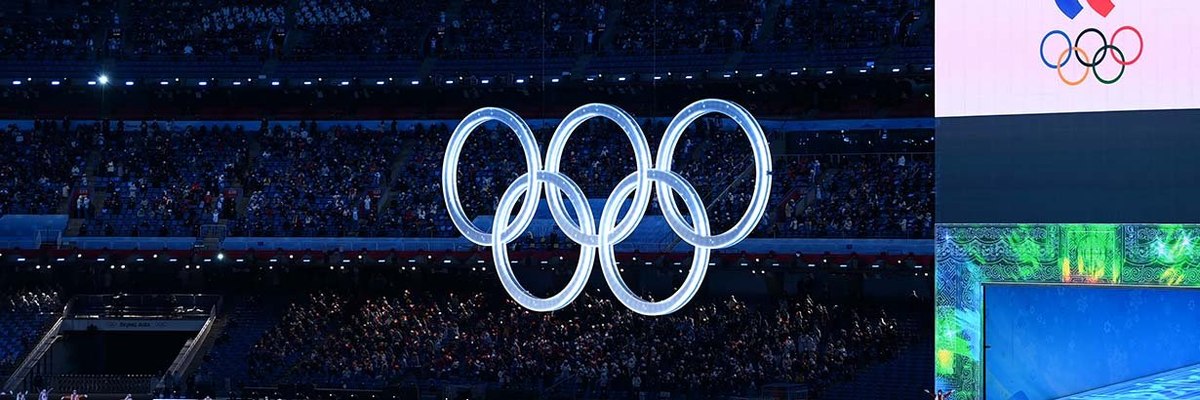Forgive me for modifying the old saying but this is a week when, we are told, television sets everywhere will be tuned to one of the greatest sporting events the world has to offer: the winter Olympics. They are, of course, being held in China and there are many who believe this is a disgrace because of China’s human rights record. They say the same about the football Word Cup which is being held in Qatar. Are they right? Or should there be different rules for sport?
One of the criticisms aimed at China is the snow or, rather, the lack of it. It’s true that we shall see mountains covered with the white stuff for skiers to display their skills. But most of it will be artificial. The real stuff is in such short supply where it’s most needed that it’s had to be made by freezing 49 million gallons of water. There’s nothing unusual about that in itself, but environmentalists argue that it’s hugely damaging in terms of global warming.
Professor John Moore, a British scientist who heads China's 'climate-engineering' research programme, says it would be surprising if the weather had not been ‘enhanced’. He told the Daily Mail that what they’ve been doing does not have effects outside the local area. He said in a heavily polluted area sooty particles cling to each droplet and prevent them growing big enough to condense into snowflakes, even on cloudy days. Even if rockets weren't fired, factories and offices would be closed, and traffic greatly reduced to ‘freshen the skies’ during the Games.
The environmental impact of the games is one factor. It’s the politics behind the event that concerns most critics. What President Xi Jinping wants to do, they say, is show the world that he is not only the supreme leader of China but the most powerful figure on the planet. The games are merely a showcase.
Human rights organisations claim that as many as a million members of China's Uighur minority are being held in detention camps and brainwashed into denying their Muslim religion and obeying the communist diktat. They also point to Tibet, which has been governed as an autonomous region of China since the Chinese army invaded in the 1950s, and to Hong Kong. Britain accuses Beijing of breaking its commitment to give its people the democratic rights they were promised when the erstwhile colony was handed back to Beijing.
The International Olympic Committee (IOC) has has come in for plenty of criticism too. It has been attacked by critics who say say all the IOC is interested in is the vast amount of cash that will be delivered to its coffers. Their president, Thomas Bach, denies it. He says the IOC is not some 'super world government' capable of tackling issues that have defeated even the United Nations Security Council.’
Beijing, for its part, denies any human rights abuses. It accuses western governments including the United States and the UK, of simply trying to steal China’s place in the sun.
The reaction of several western countries including the UK has been what they call a 'diplomatic boycott' of the Games led by the United States and the UK. Activists describe that as a totally empty gesture. All it has meant is that a few low-level western ministers nobody has ever heard of were absent when the likes of Vladimir Putin paid tribute to the Great Leader.
Boris Johnson not only flatly rejected calls to withdraw a British team, he positively encouraged competitors to take part. Lord Coe, president of World Athletics, took the same approach. He had pronounced himself to be 'philosophically opposed' to boycotts. They were, he said, 'meaningless'.
As for the athletes themselves, the Olympic rules allow them to express their own views on the stance towards human rights of their host country. But they cannot do so on the podium and their comments cannot be 'targeted directly or indirectly against people, countries, organisations and/or their dignity', and must not be 'disruptive'. Amnesty International says that amounts to an outright ban on anyone speaking out of turn.
There is, of course, another great sporting event taking place later this year which has been attacked by human rights activists: football’s’ World Cup in Qatar. Critics say it was profoundly stupid to agree that the tournament should be staged in a desert state with no footballing history or infrastructure. Thousands of poor migrant workers were shipped into the country and, they claim, forced to work in inhuman conditions. The Guardian has reported that at least 6,500 migrant workers have died because they were forced to work long hours in incredible heat with little or no protective equipment.
The Qatar ‘2022 Supreme Committee,’ has denied the charges. One official was quoted as saying: "People here feel frustrated. Why are people attacking us like this? It is our right to host the 2022 World Cup. It was voted for by the European delegations too. Are they corrupt?"
So what do you make of all this? Do you believe that in sport, as in many other spheres of human activity, we must accept the world as it is rather than as we might wish it to be? As far as China is concerned do you take the view that it’s far better to meet our ideological enemies on the ski slopes rather than the battlefield and anything that brings us closer together is to be welcomed rather than shunned? As for Qatar they won the right to stage the World Cup by outbidding all the other would-be hosts – including this country. Are we entitled to demand that any country should abandon the way it has been conducting its affairs for centuries because we do not approve? After all, nobody is forcing a British fan to buy tickets. And David Beckham no less has agreed to become Qatar’s World Cup ‘ambassador’ – admittedly for a modest £10m or so.
Or are you persuaded by human rights organisations that by sharing the football field or the ski slopes with regimes accused of caring little for the suffering of others we are condoning their behaviour? Will you be enjoying the Winter Olympics on the telly? Are you booking a flight for Qatar?
Let us know your views.






